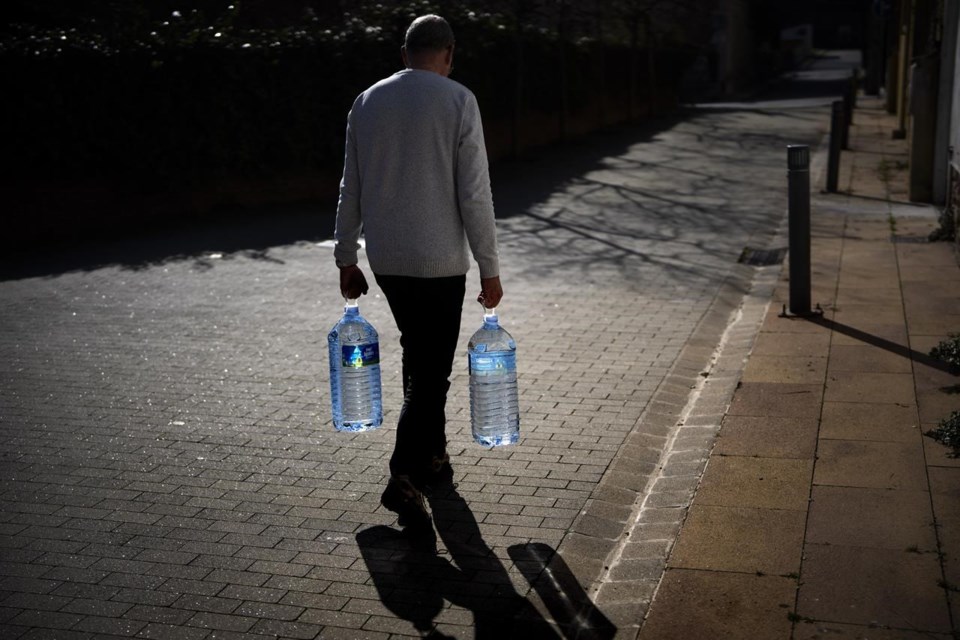BARCELONA, Spain (AP) — Spain’s will install a floating desalination plant to help the city of Barcelona guarantee its drinking water supply, regional authorities said Thursday.
Barcelona already relies on Europe’s largest to compensate over three years of below average rainfall that have led to a historic drought made worse by climate change.
Now Spain’s second-largest city will get a temporary second desalination plant in its port later this year.
David Mascort, who heads the regional environmental authority, said the plant is scheduled to start working in October. It will produce the equivalent of 6% of the city's consumption, compared to almost a quarter of the city's water now produced by Barcelona’s permanent desalination plant.
Barcelona uses desalination and water purification systems to meet its water needs. The reservoirs that serve 6 million people in central and northern Catalonia, including Barcelona, are at 18% of their capacity.
Despite , Catalonia has kept in place restrictions under a . Those limitations include a daily limit of 200 liters (about 53 gallons) per person for domestic use, and reductions in average water use by 80% for crop irrigation, 50% for herd animals and 25% for industry.
Mascort said the additional drinking water should help avoid — or at least push back the need for tighter water restrictions in the fall. He added that the floating desalination plant will make it unnecessary to bring in extra supplies of water by boat as had been initially considered.
The Associated Press



